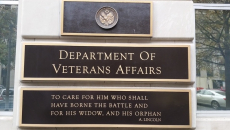
Photo: Tetra Images/Getty Images
It's been a whirlwind four months on any number of policy fronts since President Donald Trump took office for his second term, and healthcare and health IT are no exceptions.
In the first 100-plus days of the Trump administration, there have been seismic shakeups and significant staff reductions in the U.S. Department of Human Services, some new understandings about what shape AI regulation might take, continued extension (though still not permanent) of pandemic-era telehealth flexibilities and many other new developments on the regulatory front.
There's been controversy and confusion too, of course, and the big shifts in policy compared to just a few months ago have left some healthcare professionals and technology developers uncertain about what the future might hold with regard to guidance and regulation for health IT.
We spoke recently with Aaron Maguregui, partner at Foley & Lardner LLP. He's an attorney who advises healthcare and technology companies, as well as providers and payers, on regulatory and compliance issues around cybersecurity, privacy, data governance and more. He's also co-chair of the American Telemedicine Association’s Health Data Work Group Privacy Committee. We asked him about what the early weeks of the new administration have shown on the policy front so far, and what they might signal for the years ahead.
Like what you hear? Subscribe to the podcast on Apple Podcasts, Spotify or Amazon Music.
Talking points:
-
How the Trump administration’s First 100 Days have impacted healthcare and health IT
-
Why President Trump immediately rescinded President Biden's executive order on AI and replaced it with his own, and what that means
-
What the future may hold for the HHS-specific AI Strategic Plan developed by Office of the Assistant Secretary for Technology Policy, just before Trump took office
-
How AI innovation and regulation might evolve over the next few years, and whether it will keep pace with technology
-
Whether regulatory uncertainty or confusion over AI could impact investments and innovation
-
Predicting the future policies around telehealth and virtual care
-
How healthcare IT developers should be shaping their strategies as they look ahead
More about this episode:
What to look for with health IT policy in the months ahead
What healthcare leaders want Trump and DOGE to know about data policy
HHS to reduce workforce by 20K jobs in major agency-wide restructure
Senators demand justifications for mass HHS layoffs
HHS employees fear IT staff reductions could destabilize agency
Will telemedicine stagnate without regulatory reform?
Safe and equitable AI needs guardrails, from legislation and humans in the loop
Congress releases AI policy blueprint
DEA's draft special telehealth reg rule should be tossed, healthcare orgs say
Congress grants 6-month reprieve for Medicare telehealth, but questions persist
Brown University policy expert talks about the future of telehealth flexibilities


